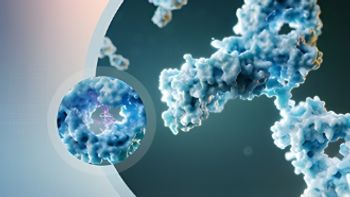
Sitting Down with Pittcon Achievement Award Winner Michael Marty
At Pittcon 2024, LCGC International editor Patrick Lavery sat down with Michael Marty of the University of Arizona to talk about the ongoing work in his laboratory.
Dr. Michael Marty is an Associate Professor of Chemistry & Biochemistry at the University of Arizona. He earned his PhD in chemistry at the University of Illinois Urbana-Champaign as a Springborn Fellow under the guidance of Prof. Stephen Sligar. Following his doctoral studies, he conducted postdoctoral research at the University of Oxford with Prof. Dame Carol Robinson before joining the University of Arizona in 2016.
Dr. Marty is best known for his contributions to the field of membrane protein biochemistry through native mass spectrometry (MS). One of his notable achievements was his development of the UniDec software platform, which is capable of enhancing the analysis of native mass spectra. His research has yielded over 50 peer-reviewed publications in prestigious journals such as the Journal of the American Chemical Society, Analytical Chemistry, & the Journal of the American Society of Mass Spectrometry.
He has been honored with several awards over the years, including the NSF Career Award, an ASMS Research Award, and the ASMS Ron Hites Award. Notably, he was granted the Pittcon Achievement Award at Pittcon 2024, recognizing his outstanding accomplishments in applied spectroscopy and analytical chemistry over the past decade.
LCGC International sat down with Marty to discuss the following topics:
- What is the topic of your presentation here at Pittcon? (0:12)
- How do these talks align with your specialization and your research interests? (0:38)
- What are you working on right now in your lab? (1:40)
- Tell us your thoughts on being honored with this year’s Pittcon Achievement Award. (2:34)
- What else are you looking forward to at Pittcon this year? (3:18)
Newsletter
Join the global community of analytical scientists who trust LCGC for insights on the latest techniques, trends, and expert solutions in chromatography.




